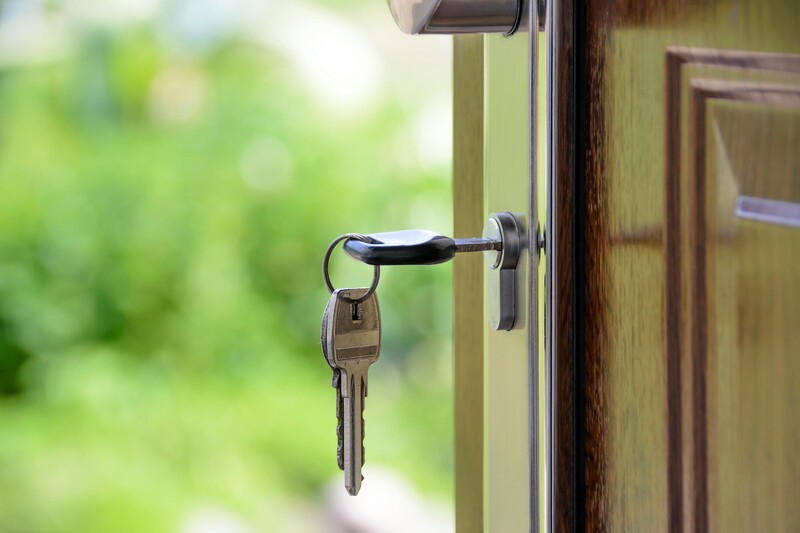
Real estate valuation is the process of determining the market value of a property. It is an essential step in buying, selling, or refinancing a property, as it helps determine the fair price for the property.
In this article, we will discuss the key factors that influence real estate valuation and how they can impact the value of a property.
What is Real Estate Valuation?
Real estate valuation is the process of estimating the market value of a property. It takes into account various factors such as location, size, condition, and market trends to determine the fair price for the property.
The valuation process is typically carried out by a professional appraiser who has the knowledge and expertise to accurately assess the value of a property. The final valuation report is known as a "laudo de avaliação de imóvel" in Portuguese.
Location
by Travis T (https://unsplash.com/@ttorres00)
Location is one of the most critical factors in real estate valuation. The value of a property can vary significantly depending on its location. Properties in desirable locations, such as city centers or near popular amenities, tend to have a higher value than those in less desirable areas.
The location of a property also plays a significant role in its potential for appreciation. Properties in areas with high demand and limited supply are more likely to appreciate in value over time.
Size and Layout
The size and layout of a property are also essential factors in real estate valuation. The total square footage of a property, as well as the number of bedrooms and bathrooms, can impact its value.
Properties with more square footage and a higher number of bedrooms and bathrooms tend to have a higher value. This is because they offer more living space and can accommodate larger families.
The layout of a property can also affect its value. Properties with open floor plans and modern layouts are often more desirable and can command a higher price.
Condition
by Samantha Gades (https://unsplash.com/@srosinger3997)
The condition of a property is another crucial factor in real estate valuation. A well-maintained property with updated features and modern amenities will have a higher value than a property in need of repairs or renovations.
The age of a property can also impact its value. Older properties may have a lower value due to potential maintenance and repair costs, while newer properties may have a higher value due to their modern features and amenities.
Market Trends
Market trends play a significant role in real estate valuation. The current state of the real estate market, including supply and demand, interest rates, and economic conditions, can impact the value of a property.
In a seller's market, where there is high demand and limited supply, properties tend to have a higher value. In a buyer's market, where there is an oversupply of properties, prices may be lower.
Comparable Properties
by Paul Hanaoka (https://unsplash.com/@plhnk)
Comparable properties, also known as "comps", are properties that are similar to the one being valued in terms of location, size, and condition. These properties are used as a benchmark to determine the value of the property being appraised.
Appraisers will look at recent sales of comparable properties in the same area to determine the fair market value of the property being appraised. This helps ensure that the property is not overvalued or undervalued.
Purpose of Valuation
The purpose of the valuation can also impact the final value of a property. The value of a property may differ depending on whether it is being appraised for a sale, refinance, or insurance purposes.
For example, a property being appraised for a sale may have a higher value than the same property being appraised for insurance purposes. This is because the value for insurance purposes only needs to cover the cost of rebuilding the property, while the value for a sale needs to consider market demand and potential appreciation.
How to Improve the Value of a Property
There are several ways to improve the value of a property, including:
Renovations and Upgrades
by dylan nolte (https://unsplash.com/@dylan_nolte)
Renovations and upgrades can significantly impact the value of a property. Upgrading outdated features, such as appliances and fixtures, can make a property more desirable and increase its value.
Renovations that add living space, such as adding a bedroom or bathroom, can also increase the value of a property. However, it is essential to consider the cost of the renovation and the potential return on investment before making any changes.
Curb Appeal
The exterior of a property, also known as "curb appeal", can also impact its value. A well-maintained and visually appealing exterior can make a property more attractive to potential buyers and increase its value.
Simple improvements such as landscaping, painting, and cleaning can make a significant difference in the overall appearance of a property.
Energy Efficiency
Properties with energy-efficient features, such as solar panels or energy-efficient appliances, can have a higher value. These features can save buyers money on utility bills and make the property more desirable.
Location
As mentioned earlier, location is a crucial factor in real estate valuation. While you cannot change the location of a property, you can highlight its desirable features, such as proximity to public transportation or popular amenities, to increase its value.
Conclusion
Real estate valuation is a complex process that takes into account various factors to determine the fair market value of a property. Understanding these key factors can help buyers, sellers, and investors make informed decisions and ensure that they are getting a fair price for a property.
By considering the location, size, condition, market trends, and purpose of valuation, and making strategic improvements, it is possible to increase the value of a property and achieve a higher return on investment.
Unlock the secrets of real estate valuation and understand how factors like location and size affect property value. Click here and contact us





